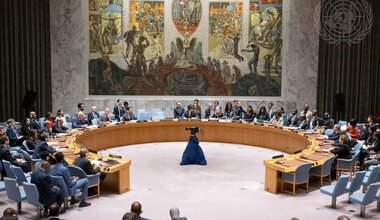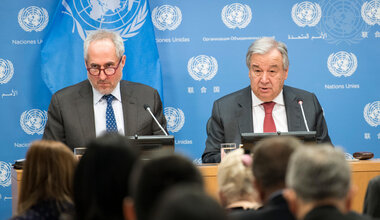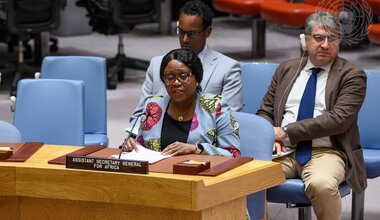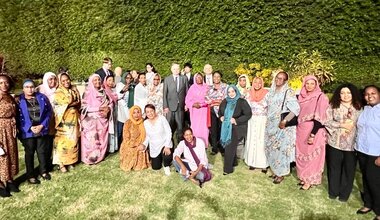Little progress on disputed Abyei region between Sudan and South Sudan
Jean-Pierre Lacroix briefed ambassadors on recent developments concerning the oil-rich border area, where the UN interim security force, UNISFA, has been deployed since 2011 to protect civilians and humanitarians.
He recalled the signing earlier this month of an historic peace agreement between the Sudanese authorities and several armed groups from Darfur following a year of negotiations facilitated by South Sudan.
The two neighbours have also signalled their intention to relaunch the political process to discuss the final stages of Abyei and its border areas, which Mr. Lacroix described as a positive development.
“However, despite this continued rapprochement between the Sudan and South Sudan, the peace process has made little progress in Abyei. The main developments at the local level were the appointments by Juba and Khartoum of their respective chief administrators”, he said.
“This constitutes an unprecedented political development as it is the first time Abyei has two appointed chief administrators.”
Volatile security situation
Meanwhile, the security situation in Abyei remained volatile.
Mr. Lacroix reported that since April, there have been four attacks against UNISFA personnel and four incidents of intercommunal violence, including armed attacks on villages.
While the force continued to engage leaders from the Nginka and Misseriya communities, the violence has had a negative impact on peace efforts.
Reduced force strength
The UN peacekeeping chief also reported on issues facing UNISFA, which has a mandated deployment of 640 police personnel. This figure includes three Formed Police Units consisting of 160 officers each. However, staffing currently stands at 35, with 16 officers set to end their assignments in the coming weeks.
“Since no visas have been issued for any new officers who could be deployed as replacement, the strength of the police component will reduce to 19 officers. Consequently, this situation will inevitably lead to the closure of some team sites in UNISFA, and will have a negative impact on the mandate implementation”, said Mr. Lacroix.
The non-issuance of visas, coupled with COVID-19 travel restrictions, has also affected China and Tanzania who must conduct reconnaissance visits to the area ahead of sending personnel for the force.
Cooperation on oil production
The Security Council heard in addition from the UN Special Envoy for the Horn of Africa, Parfait Onanga-Anyanga, who also commended the growing engagement between Sudan and South Sudan.
“As the countries now strengthen their relationship, they are no longer likely to pursue activities that undermine each other’s stability”, he said.
The Special Envoy reported on continued cooperation in oil production. Last month, the two countries signed a protocol on the resumption of production in the Unity and Toma South oil fields in South Sudan, with 15,000 barrels per day expected soon.
“The deal includes details on the transfer of crude oil to Sudan for its domestic use. In return, Sudan will provide technical support”, he said.
“Before the agreement, South Sudan was providing 30,000 barrels per day of crude oil to Sudan. The deal is in line with South Sudan’s plan to return to its pre-conflict production level of 350,000 barrels per day from its current 150,000 barrels per day ."
Article available here: https://news.un.org/en/story/2020/10/1075952
 UN
UN





